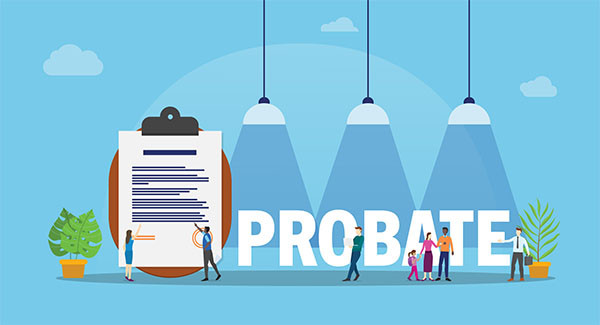Need help moving your aging parent? WayForth’s senior move management specializes in helping senior transitions. With our solutions such as downsizing, packing and unpacking, floor planning, storage, and more, we can take the stress out of moving. Contact us today to learn more!
There is no place like home, but the truth is that whether you’re local to your parent’s area or live out of the state, home visits, no matter how brief, can become stressful if you are caring for older parents whose health is declining quickly.
It’s no surprise that we see a surge in phone calls the day after Thanksgiving and after Christmas from adult children who want help with downsizing or moving their older parents into assisted living. Congregating at your aging loved one’s home, any time of year, should be joyous, but it can also quickly bring light to the fact that mom and/or dad needs help.
You can preemptively combat this stress by preparing a list of items to check up on during your home visit, even if it’s just for a few days. We’ve found that going in with a plan does a couple of things:
- First, it arms you with a sense of control and confidence. This way, you (and your siblings) are less likely to be blindsided, and your parents are less likely to be alarmed or upset by your shock at the state of things.
- Second, it gives you the foresight to take advantage of time together to introduce the idea of downsizing or moving to assisted living if you think it may be necessary.
Here are the three areas to check if you are caring for older parents:
Home Maintenance
We’ve noticed that the biggest safety threat that often goes overlooked by those caring for elderly parents is deferred maintenance on an aging house. Because so many seniors prefer to age in place, they’re often living in houses that are 40, 50, 60 years old or older. The last time your parents did a full maintenance check may have been before Dad’s knee replacement, when he could still climb a ladder.
Make an initial sweep around the house. Check the air filters, lightbulbs, locks on all windows and doors, faucets, and HVAC. Peer up the chimney, check for loose boards on stairs or the porch and make sure there are non-slip mats in every bathroom.
Assess the amount of extra content in the house: Are there piles of newspapers that could cause a fall or be a potential fire hazard? Make a note of everything you see, including the room where the problem is located.
Check their vehicles, too – make sure the starter turns over, the brakes work, and there aren’t any service lights on in the dash.
If you live in a snowy area, line up someone to shovel and salt the walk and driveway when the weather hits. Neighbors can be great resources – just ask if they’d be willing to keep you updated.
Documents & Finances
Many of us grew up with our parents saying their finances weren’t any of our business, but if you’re a potential executor of their estate, their caregiver, or both, then it is your business. This can be a difficult conversation to broach, but it’s important to understand your parents’ financial situation in case an unexpected emergency arises.
Be tactful in your approach—ask how their new financial advisor is working out or if they or any of their friends are talking about a reverse mortgage.
Find out where financial and health-related documents are stored. If one of them is struck by an unexpected medical emergency, you’ll need to know where their health insurance documentation and medical records are kept, plus any deeds or titles in case the situation escalates to downsizing or a move to assisted living.
Health & Medications
Barring any medical complications that are obvious upon arrival, the three most important health issues are:
- nutrition
- medications
- memory
Nutrition
Open the fridge and pantry and do a cursory scan for fresh fruit, vegetables, and protein. If all you see are canned goods, chips, and cookies, look into applying for Meals on Wheels. Volunteers bring home-cooked meals right to your parents’ front door, and they cater to over 14 special diets.
Don’t stress too much over the ever-present sweets, though; if your 92-year old dad wants to eat a pint of Neapolitan ice cream every day, let him. He’s earned that right.
Medications
Caring for a parent who takes multiple medications means checking to make sure the meds are organized and don’t conflict with each other.
Read the bottles: are they all prescribed by the same doctor? If not, write down the names of the medications and ask your own pharmacist about them later.
If you’re concerned about your parents’ memory, consider buying weekly pill organizers and add extra labels, like name, month, and dates, to ensure it’s clear who should take which medications and when
Memory
If you don’t see your parents often, it can be difficult to pick up on any potential memory or cognitive issues in the span of a short visit.
This is where the neighbors come in handy again. If they see your parents regularly, ask if they’ve noticed any odd behavior from Mom, like repeating stories or forgetting regular events. If there’s a possibility that she’s showing signs of dementia, make a doctor’s appointment as soon as possible, and make plans to go with her. Many causes of dementia, like medication side effects or kidney problems, can be remedied if caught early.
Caring For Aging Parents Near & Far
Finally, a key part of caring for aging parents even if you aren’t around all the time is to simply ask them how they’re doing and if they need or want anything.
At a time when they may start feeling a loss of control, allowing them an opportunity to voice their own concerns may help balance out the changes older parents must make to ensure their continued safety and security. Ask if there is anything you can take to Goodwill or the dump. If they are feeling bored, find fun classes or events that accommodate seniors.
And don’t forget to take some time to just enjoy each other’s company when possible—it’s the best way to show them you care, and it’s guaranteed to be good for your mental well-being, too.






